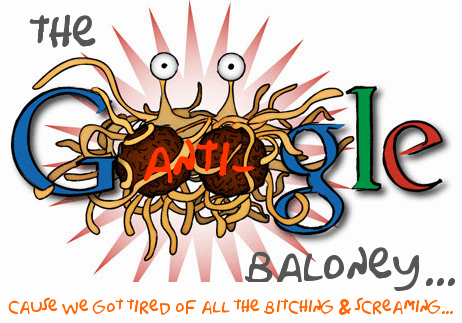
While reading user comments on an article in The New York Times (Technology section) titled More on the ‘Is Google Evil?’ Debate, I stumbled upon the following post. It is written by a guy called Miguel, who claims to be an ex-employee of the company. It was the best (in my humble opinion) post out of 50...
As a former Google employee I believe that Google has the best interests of its users in mind. The “Don’t be evil” dictum is hackneyed by now and inherently leaves a lot to interpretation, as people will naturally define “evil” differently.
Google does care intensely about user privacy, and they seek to protect user information at every step of the product development cycle. The piece above does not cite, in my opinion, any compelling arguments that suggest otherwise. As for capitulating to the great firewall of China, I believe that some search results – and by some we’re talking about the *vast* majority of Google’s index – are better than none at all. Chinese users still reap massive benefits by having access to Google.
“Flooding your eyeballs” with ads is not Google’s main preoccupation. But advertising is the means by which they support their application development and ambitious goal of organizing the world’s information – just as it is for the majority of online publishers, portals, and social networks.
Paid subscription models for accessing news sites, for example, disappeared as content providers realized the value in offering their content for free and supporting it financially through advertising.
What Google excels at is making sure the advertising we are exposed to is relevant, useful, and valuable, ultimately improving user experience. (If I have to see ads, at least let them be of interest to me.) On the advertisers’ side, they reap the benefits of being able to see exactly what they’re getting out of their advertising budgets – something previously not possible until cost-per-click models like Google’s.
The result is that everyone benefits: content providers (from the hobby blogger to the New York Times), users (searching for everything from dentists to dining room tables), and advertisers (from small online retailers to Fortune 500 corporations).
Finally, the examples of corporate greed and exuberance outlined at the debate referenced in this article come off as petty jealousy. It was a wonderful thing not having to think about how I’d feed myself for four years. Indeed it’s what I miss the most. These seemingly extravagant benefits originated from a couple of gifted geeks who thought it would be cool to provide the people working hard for them with amazing benefits – nothing more. You’re not chained to your desk at Google. They’re lax about when you come and go because they hire people who are inherently self-motivated and there is a tremendous amount of trust afforded to employees.
Google’s ultimate focus is to create killer apps, as they’re called in industry speak, i.e., incredibly powerful and useful web driven applications that provide tremendous value to users. They just happened to stumble across arguably the most successful business model in a century. And now it seems they’re paying the price with ignorant, hasty, and envious judgments from the very users who can’t imagine a world without Google search.
— Miguel




No comments:
Post a Comment